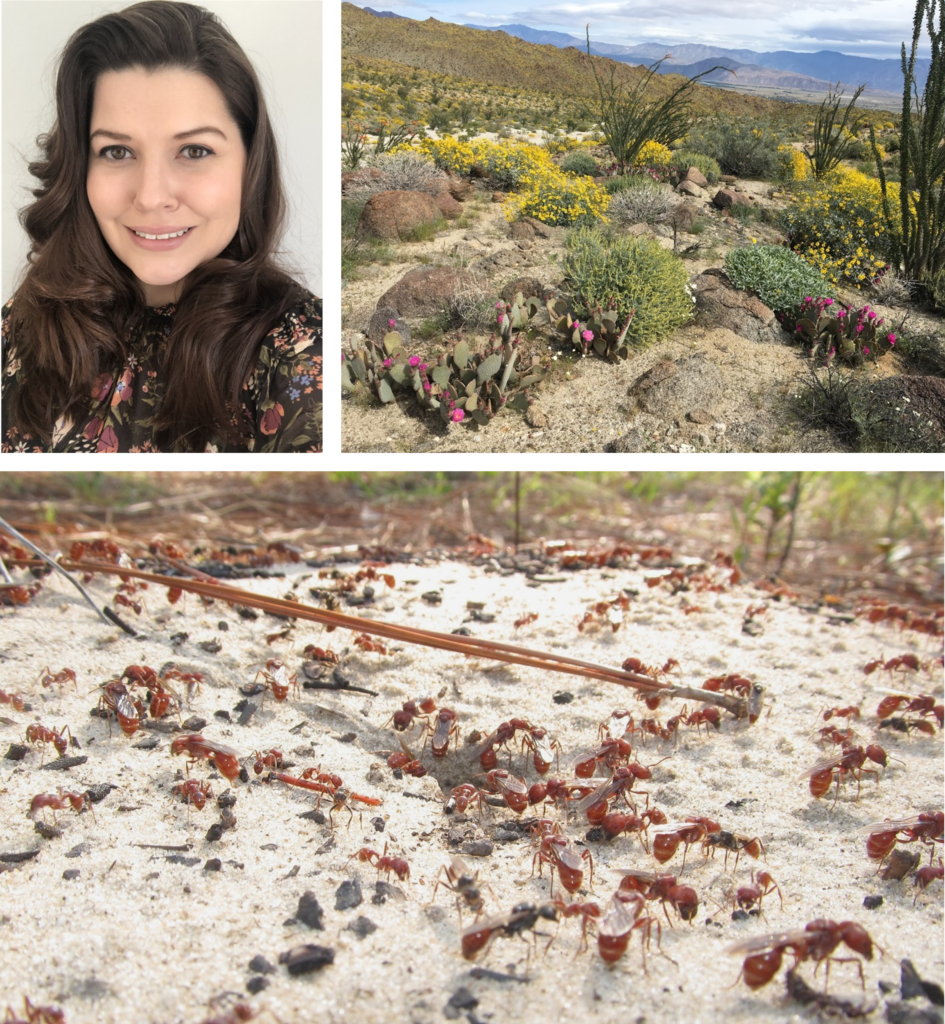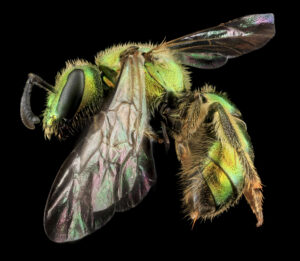Watch the zoom recording of Christina Kwapich’s talk here
Tuesday, May 10th, 2022
Virtual Zoom Meeting
7:30 PM EST
The economics of granivorous ant societies
Christina Kwapich
Department of Biological Sciences, University of Massachusetts Lowell

Abstract:
The survival of an animal group can depend on its size and stability over time. To avoid losses in size, ant colonies must offset worker mortality with new worker production by the end of each annual cycle. This talk will compare the innovations in seed processing and labor allocation that allow granivorous ant societies to balance their annual budget, and occasionally, to grow. While some species rely on germination to access large seeds, others increase worker number by reducing worker body size. In turn, worker body size influences nest complexity, the tendency to rescue of sisters from spider webs, and even the size of invading myrmecophiles, like parasitic ant crickets. For more information, visit the Kwapich lab website.
Due to visitor restrictions on Harvard campus and COVID-19 social distancing guidelines, we are temporarily suspending all physical meetings and formal pre-talk dinners until further notice.
CEC meetings are normally held the second Tuesday of the month from October through May. The evening schedule typically includes an informal dinner (5:45 to 7:15 PM) followed by our formal meeting (7:30 – 9:00 PM). The latter begins with club business and is followed by a 60-minute entomology related presentation. Membership is open to amateur and professional entomologists.




